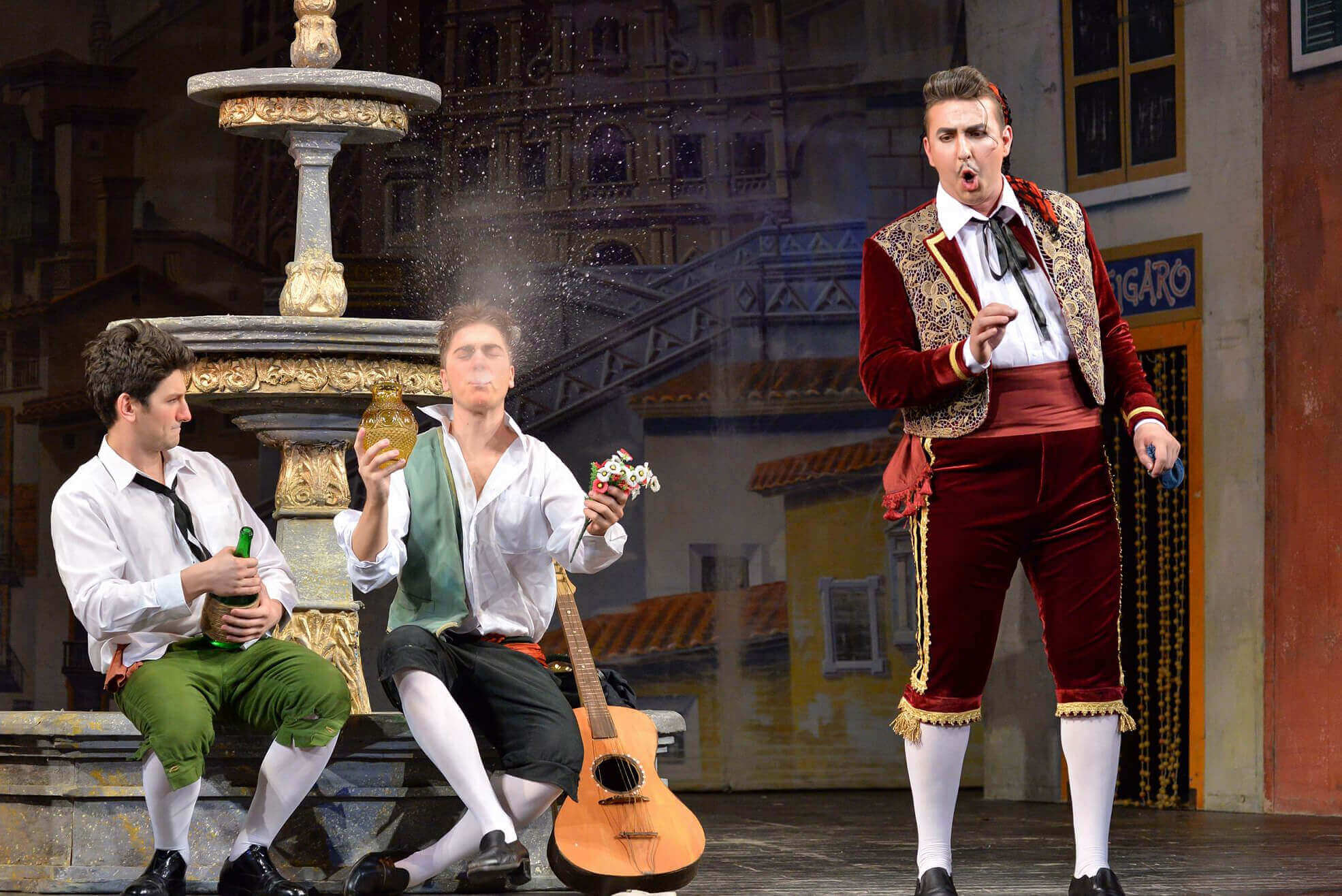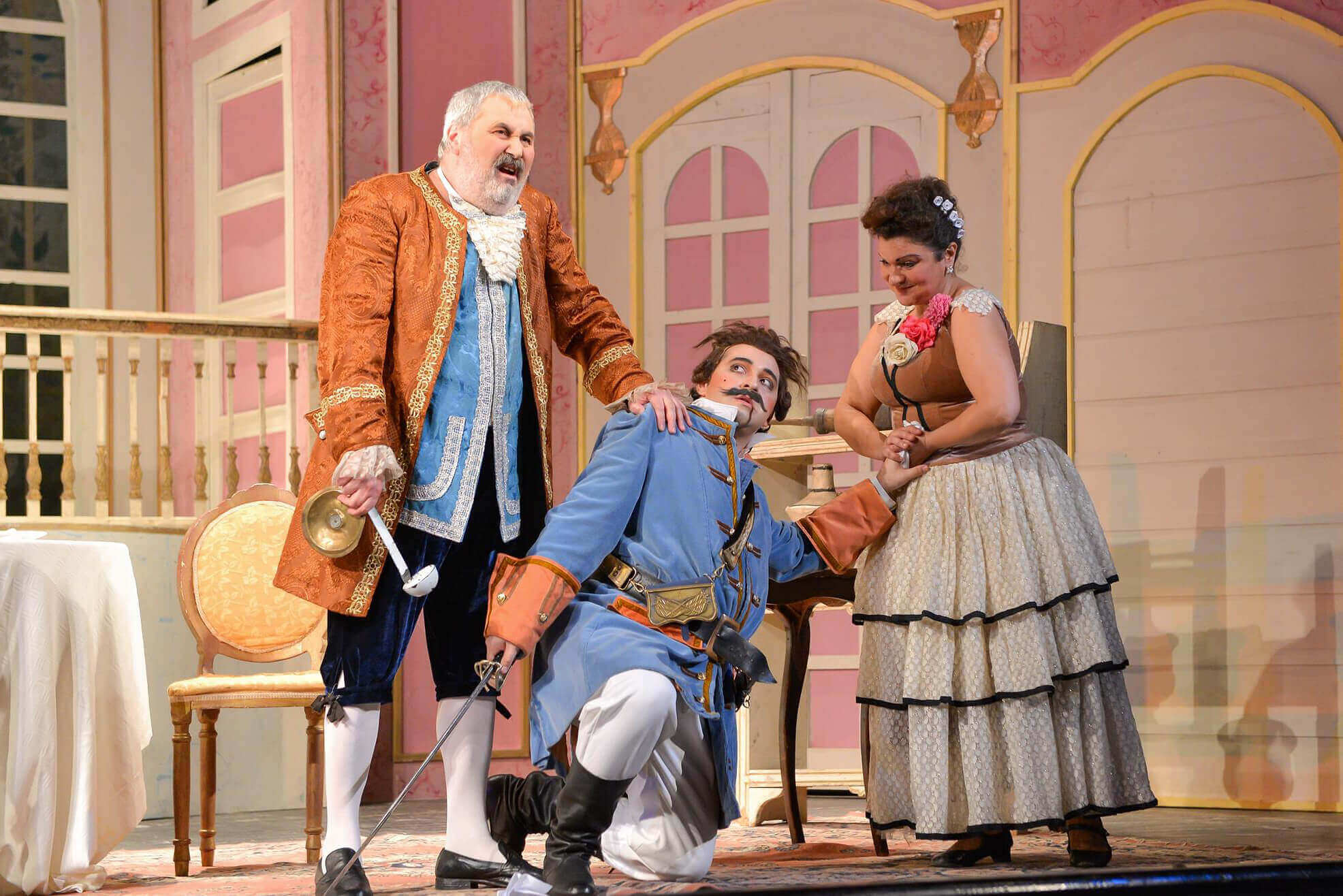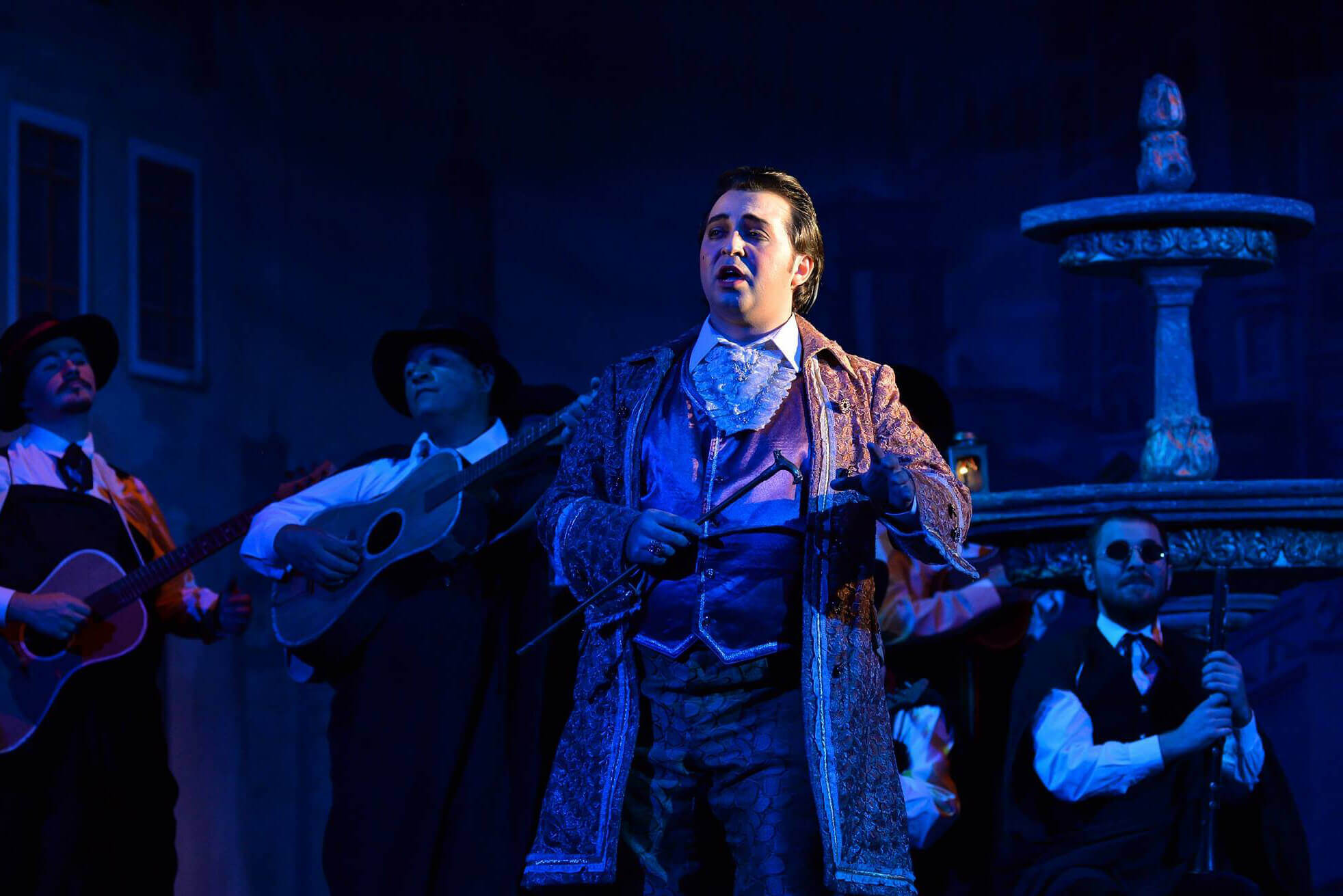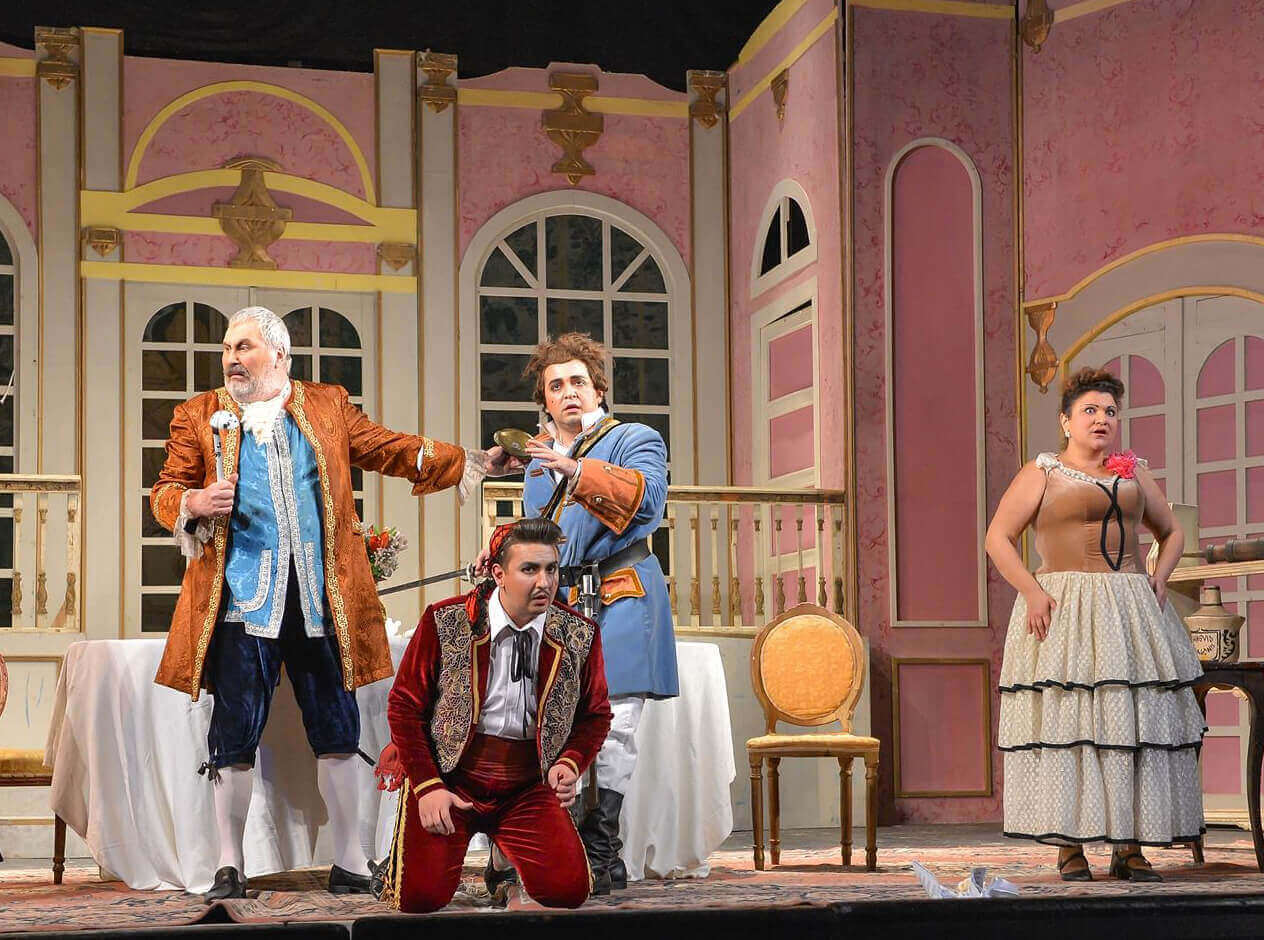
Main Hall
distribution
Artistic direction: Emil Strugaru
Scenography: Andrei Șchiopu
Stage and backstage direction: Cristina Albu
Cast:
Figaro, barber: Geani Brad
Rosina, Bartolo's pupul: Florentina Soare (guest, debut) - Winner of The International Singing Competition ”Georges Enesco” Paris, 2017 - sections Grand ”Opera” Prize, and Special ”Role” Award Premiul granted by The Romanian National Opera in Cluj-Napoca
Count Almaviva: Andrei Fermeșanu (invitat)
Don Bartolo, doctor of medicine: Cristian Hodrea
Don Basilio, music teacher: Petru Burcă
Berta, governess: Liza Kadelnik
Fiorello, Almaviva's servant: George Godja
The Officer: Vasile Neamț
Ambroggio: Emil Rădulescu Chioreanu
The Orchestra and the Men's Chorus of the Romanian National Opera in Cluj-Napoca
Accompaniment of recitatives: Adela Bihari
Chorus master: Emil Maxim
Chorus conductor: Corneliu Felecan
description
show category: opera
Opera in three acts on a libretto by Cesare Sterbini, based on Pierre Beaumarchais’ play Le Barbier de Séville
Recommended Age: 7+
One of the most comical, animated and long-awaited operas ever written, Gioachino Rossini’s The Barber of Seville always cheers our performance hall and is met, at each presentation, with roaring applause by the public of Cluj.
The performance brings once again on stage Figaro, the humorous, courageous and romantic Spanish barber, who gives a charming touch to the love story between the restless Count Almaviva and beautiful Rosina. Gioachino Rossini’s work has had a huge success ever since its 1816 absolute premiere, when it opened with the initial, otherwise suggestive title of Almaviva (The Useless Precaution). The funny barber is even now topping the bills of opera theatres all over the world.
In the enchanting and colourful 18th century Seville, Figaro is the barber loved by the entire city, who helps fulfilling Rosina and Count Almaviva’s great love. However, there is a huge challenge, because Rosina is also chased by her old tutor, Bartolo, who has the advantage of being helped by Basilio, the young woman’s music teacher.
The opera’s atmosphere of love and humous is given by the multiple tricks that Count Almaviva and Figaro resort to in order to approach the beautiful lover and declare her love. The final scene, where Figaro and the Count enter Rosina’s house at midnight, climbing on her balcony-propped stair, provides a more passionate air to the three-act bouffe masterpiece. Rosina’s heart ecperiences the utmost joy when Almaviva bends on his knees to offer his love, whealth and name. The ardent declaration is also joined by teacher Basilio, bribed by Bartolo’s adversaries, who becomes witness for the lovers’ marriage. The old and glum Barolo arrives too late to stop their union and is only consoled by the fact that he gets to keep Rosina’s dowry, which Almaviva has given up to.
The performance has two breaks and ends around 9.45 p.m.






